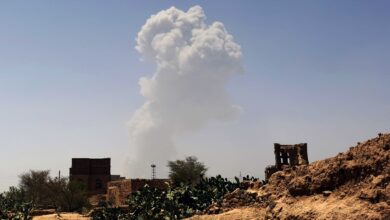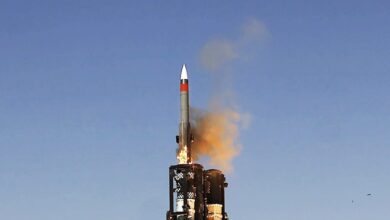Israel Trials Giant Balloon-Based Early Missile Warning System
The Israel Missile Defense Organization (IMDO) has begun testing an aerostat-based early warning threat detection system to be deployed in northern Israel.
The High Availability Aerostat System, jointly developed by the IMDO and the US Missile Defense Agency, detects incoming long-range missiles, cruise missiles, and drones, The Times of Israel revealed, citing the Ministry of Defense.
The Israel Missile Defense Organization has begun testing an Elevated Sensor system designed to detect incoming threats. It is comprised of a High Availability Aerostat System & an advanced radar. It will operate at high altitudes, providing detection & early warning capabilities pic.twitter.com/iA6izEU9KU
— Ministry of Defense (@Israel_MOD) November 3, 2021
Complements, Improves Existing Systems
According to the outlet, the “Sky Dew” system complements and improves existing air defense systems by placing an “advanced radar” at a higher altitude than present systems.
The CEO of system co-developer Israel Aerospace Industries Boaz Levy explained that the “elevated sensor system provides a significant technological and operational advantage for early and precise threat detection.”
“This technology increases the reliability of the aerial surveillance picture, and increases efficiency against a range of targets.”
Geared to Increased Drone Threat
The development is part of Israel’s efforts to enhance its air defense in the light of Iranian-made drones finding their way into the Middle Eastern region in recent years, The Times of Israel revealed last month.
According to the outlet, the Middle Eastern country currently relies on its air force’s fixed air defense systems spread throughout the country, supplemented by mobile batteries, which are pressed into service when the need arises.
The country’s military, however, has increasingly recognized that present air defenses, which have faced threats ranging from rockets, missiles, and aircraft, need to also factor in the challenges posed by unmanned aerial vehicles, which are more difficult to counter than a rocket due to their lower flight altitude and less predictable flight pattern.
Israel initially plans to upgrade the air defenses in its northern territory, providing “full, permanent defensive coverage” within two years. The system will eventually be expanded to the entire country, the Jerusalem-based outlet added.
The government is procuring additional radars and has modified its short-range Iron Dome missile defense system to intercept drones. Israel is also reconfiguring its other air defense system, David’s Sling, to provide it with similar capabilities.











